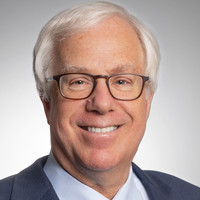When Alexander Kutik and his wife, Alla Zernitskaya, fled the Soviet Union in 1990, the two Belarussian musicians took with them two young sons, two suitcases and a shared faith in the power of music. Alexander was a trumpeter; Alla taught violin to children. The anti-Semitism that has forever been a poisonous fixture in Russia had given them no realistic alternative to leaving. They settled in western Massachusetts, refugees from a place that was dead in spirit and short on hope, eager to start fresh in a country that offered both.
Their younger son, Yevgeny, submitted to his mother's violin lessons in a big way. By age 18, Yevgeny Kutik was a nationally recognized concert violinist. Now 35, he is asked to perform all over the world. His breakthrough album, "Music from the Suitcase," was based on sheet music passed down in his family, which his mother stuffed into those two suitcases when they departed the imploding Soviet Union with less than $500 to their name.
Like that of hundreds of thousands of artists of every variety, Kutik's life changed abruptly with the pandemic's arrival earlier this year. "By late February," Kutik recalls, "the next concert suddenly canceled. Then the next concert canceled. By that point, the whole thing fell apart. All of a sudden, this work which you've spent your life developing evaporated overnight."
Kutik is quick to point out that he is one of the luckiest of the innumerable people in America's arts world whose lives have been upended and whose futures are in doubt. The pandemic has shut down venues all over America and, indeed, all over the world. Performers, writers, technicians, ticket takers, custodians and virtually everyone associated with the arts has seen their prospects placed under a cloud, their income slashed or eliminated. Food, rent, health care and retirement are now question marks for many. "I have colleagues who are truly suffering," says Kutik, and the suffering has infiltrated every nook and cranny in American arts and culture. "It's been 'You're on your own now. Good luck.'"
The pandemic's direct economic hit on the American arts extends to other linked industries, such as restaurants, lodging and travel. But the damage inflicted is not merely economic. America in December 2020 is experiencing many of the same troubles that beset it during the Great Depression: shaken confidence that we genuinely embrace the values we say we do; fissures and fractures along racial, demographic and political lines that make us all wonder about our national future; and the death around us both measured in lost lives and evident in depleted spirit. "It seems like our 'empathy muscle' is deteriorating," Kutik says. "What are the arts? The arts are actually the No. 1 pathway toward building empathy. If you cut arts during normal times, what do you do now? The more you cut, the less empathy, and then there's a downward spiral."
President-elect Joe Biden has been bequeathed quite a nightmare, with no shortage of dire needs to meet. The suffering in America's arts community is one of them. There is precedent for a national effort to rescue that community in calamitous times: The New Deal's Federal Project Number One sought to bolster the country's music, theater and fine arts sectors, to provide not only income but also the stimulation and magic so important to lifting the nation's wobbly psyche. Franklin Roosevelt's administration understood just how vital those sectors are to keeping a frayed nation united.
Yevgeny Kutik is hopeful. "People do love music," he says. "They do love art. After this collective hibernation, I really think there will be a rush, a Renaissance. But getting to that point will require a collective, all-hands-on-deck effort."
The Biden administration will have headaches aplenty, thanks to the disastrous presidency that precedes it. The new president has to figure out a way to repair the damaged arts industry, for all of our sakes.
Jeff Robbins, a former assistant United States attorney and United States delegate to the United Nations Human Rights Council in Geneva, was chief counsel for the minority of the United States Senate Permanent Subcommittee on Investigations. An attorney specializing in the First Amendment, he is a longtime columnist for the Boston Herald, writing on politics, national security, human rights and the Mideast. To find out more about Jeff Robbins and read features by other Creators Syndicate writers and cartoonists, visit the Creators Syndicate website at www.creators.com.
Photo credit: Ri_Ya at Pixabay






View Comments